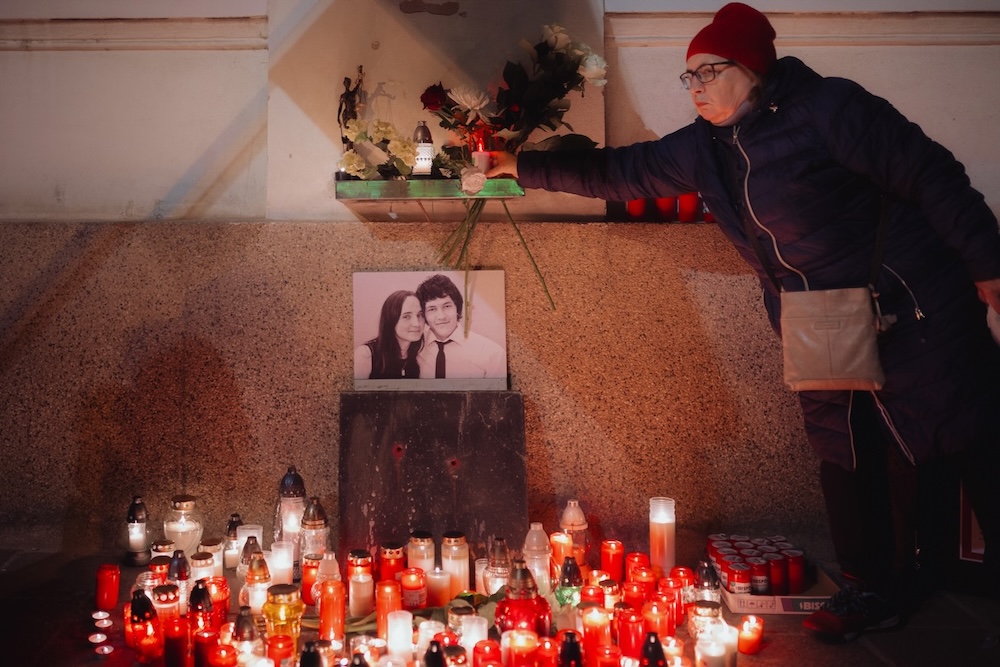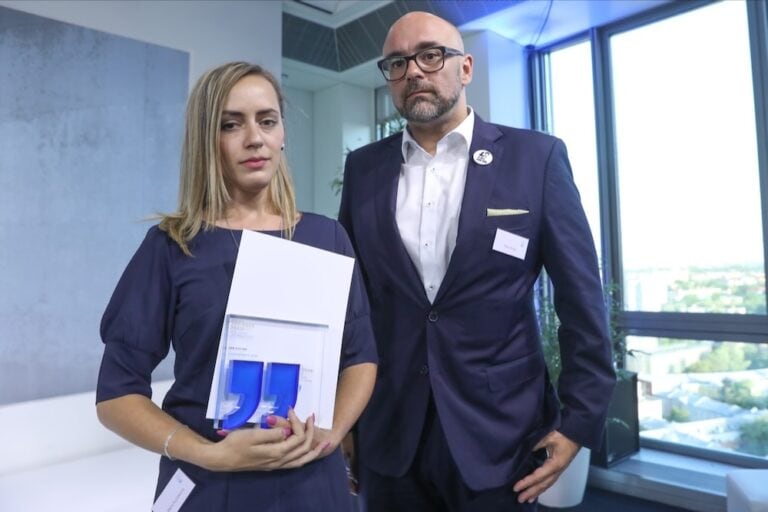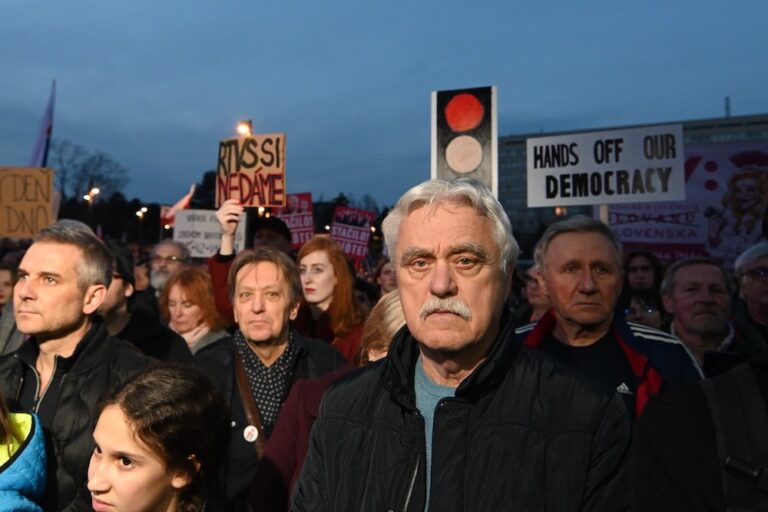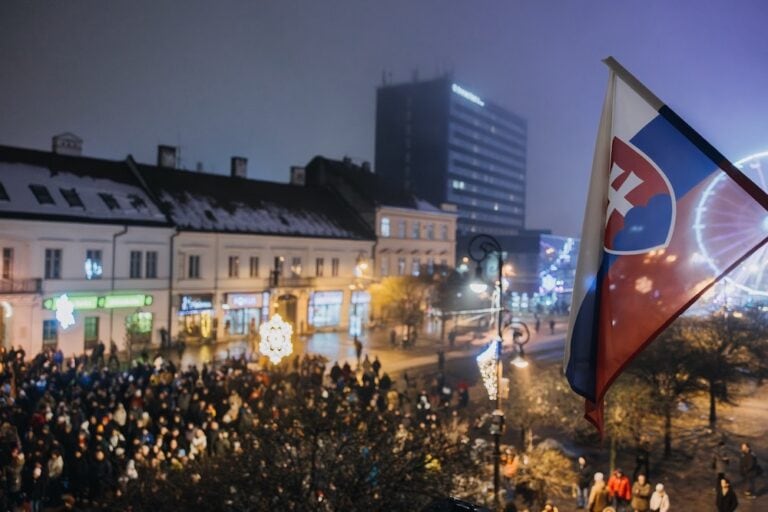"The Slovak government's actions are not only detrimental to the media landscape but also pose a significant challenge for the EU, particularly in light of new legislative measures such as the European Media Freedom Act" - press freedom groups
This statement was originally published on article19.org on 4 December 2024.
Media freedom in Slovakia faces a growing threat, and urgent action is needed to protect it. The Slovak government – a member of the Media Freedom Coalition – has an obligation to foster a safe and enabling environment for media and journalists. Instead, the current government is chipping away at legal protections for the freedom of the media and fueling an increasingly hostile environment for journalists.
The Slovak government’s actions are not only detrimental to the media landscape but also pose a significant challenge for the European Union, particularly in light of new legislative measures such as the European Media Freedom Act. Upholding international and European standards for freedom of expression in Slovakia is essential to reversing this troubling trend. The situation in Slovakia serves as a crucial test case for the EU’s commitment to safeguarding democratic values and media independence across its member states. Immediate and decisive action is required to restore trust in democratic institutions and ensure that Slovakia can develop into a more robust supporter of media freedom in Europe.
Threats to Safety of Journalists
Government officials and politicians in Slovakia regularly insult and threaten journalists, creating a hostile environment that damages public trust in the media and places the physical safety of journalists at risk. Prime Minister Fico labelled journalists from major media outlets as ‘bloodthirsty bastards’, threatening them with new restrictions and suggesting that they face accountability for their reporting. Such verbal attacks have been echoed by other government officials who have accused journalists of inciting violence and contributing to societal unrest. In particular, Andrej Danko, leader of the Slovak National Party, claimed that the media had ‘blood on their hands’ following the horrifying assassination attempt on Prime Minister Fico, insinuating that critical reporting was responsible for creating a dangerous atmosphere.
More broadly, journalists in Slovakia face severe harassment and attacks online. We note that, following the assassination attempt, the authorities promised to crack down on illegal online threats. But our mission heard that while the authorities are tackling threats to politicians, they are failing to address serious harassment of journalists.
The sense of fear in the media community is exacerbated by the ongoing impunity over the murders of journalist Ján Kuciak and his fiancée, Martina Kušnírová, and the government’s disbandment of the Special Prosecutor’s Office responsible for pursuing all those responsible for the crime. As a coalition, we continue to stand in solidarity with Ján and Martina’s families and underscore our commitment to fighting for justice until all those responsible for their murders are held accountable.
Media Capture
The current media landscape in Slovakia is under significant threat of media capture. Recent steps in this direction include the organization of the public broadcaster to place it under greater state control, and the use of economic pressure against independent media, including threats to weaponize state advertising.
We note with concern a government proposal to change the structure of the media regulator, the Media Services Council, from a collective body of nine board members, to a one-person statutory body, appointed by the government. This move would increase government control of the media regulator and therefore would be a move away from the principles of the European Media Freedom Act.
At the same time, Slovakia remains home to a strong independent media sector and our mission was encouraged by the resilience and solidarity within the journalistic community. However, the situation at the regional level is more worrying as dubious and misinformation sources have begun to fill the information spaces in news deserts.
Legal Threats
Various legislative proposals that could result in greater government control or pressure on media have been adopted or are currently under consideration in Slovakia.
These proposals also include planned ‘foreign agent’ legislation. While the bill has been watered down after much criticism, it still poses a risk to media freedom.
Changes made to the Freedom of Information Law – namely, extending the deadline for responses from 8 to 12 days and introducing a possibility of fees for access to information requests – restrict the right to access information in Slovakia.
We are also concerned about new legislation that would require media – under threat of fines – to publish replies from politicians in response to journalistic content.
Prime Minister Fico’s SLAPP lawsuit against the editor of Aktuality, Peter Bardy, in which the prime minister is demanding 200,000 euros in response to his photograph being used on a book Bardy wrote about Fico, highlights the risk of the legal system being misused to intimidate government critics. It also illustrates the urgent need for the government to introduce strong anti-SLAPP laws in line with new European standards on SLAPPs.
Disinformation and attacks on information integrity
Disturbingly, the current government openly shuns independent media – refusing to grant interviews, respond to questions at press conferences or provide information – while instead engaging with and promoting, “alternative” outlets widely seen as spreading disinformation, including pro-Russian disinformation, and parroting rhetoric attacking independent media.
This practice damages the ability of journalists to do their work and undermines the public’s right to information and the government’s accountability for their actions. The government’s lack of transparency and dialogue is alarming. We are dismayed that in stark contrast to previous visits to the country, on this trip we were not granted meetings during the mission with any government offices or official representatives of the governing coalition.
MFRR calls on the government to immediately cease the smearing and discrediting of journalists, to guarantee the editorial independence of all media, including public service media, and to withdraw all legislative measures that limit media freedoms.
![]()



